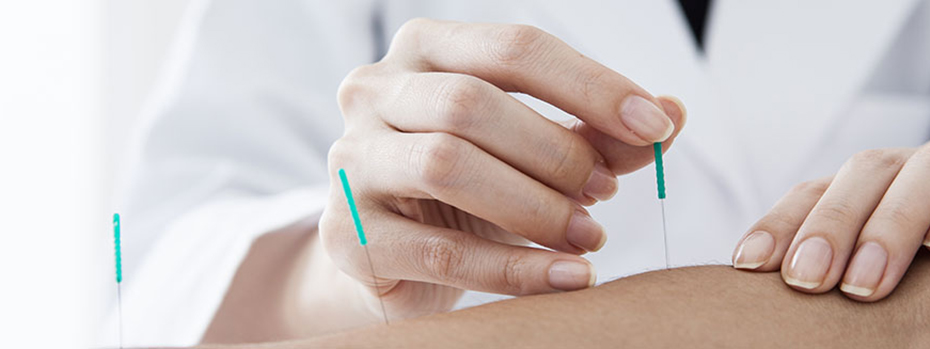Acupuncture for Cancer

The OHSU Knight Cancer Institute offers a full range of therapies to help you manage cancer and cancer treatment. This includes acupuncture, which is used to help cancer patients manage:
- Pain
- Nausea and vomiting
- Fatigue
- Hot flashes
- Dry mouth (xerostomia)
- Peripheral neuropathy (pain, numbness or weakness, often in the hands or feet)
- Anxiety
- Depression
- Sleep problems
- Bowel and digestive issues
Understanding acupuncture
What is acupuncture?
Acupuncture is an alternative therapy that has been practiced in China and other parts of Asia for thousands of years. According to traditional Chinese medicine, qi (pronounced “chee” in English) is a life energy that flows through the body along pathways called meridians.
Practitioners believe qi has two opposing forces, yin and yang, that must be in balance for optimal health. If they fall out of balance, qi can become blocked, leading to pain or illness. Acupuncture is used to restore the flow of qi.
Most commonly, thin needles are placed into “acupoints,” where meridians are thought to surface. The acupuncturist chooses among the body’s more than 360 acupoints based on the condition being treated.
How does acupuncture work?
Acupuncture is thought to stimulate the body’s immune system and to encourage the release of pain-relieving endorphins, among other effects, according to information on the National Cancer Institute website. In cancer treatment, it is often a complementary therapy, used in addition to standard treatments.
Is acupuncture safe and effective?
The U.S. Food and Drug Administration approved the use of sterile, single-use acupuncture needles by licensed practitioners in 1996.
According to the National Cancer Institute, clinical trials have found evidence that acupuncture helps some side effects of cancer treatment. More studies are needed in many cases. So far, studies have found:
- Acupuncture is safe.
- It may improve immune response.
- It may relieve pain, fatigue, hot flashes, dry mouth, depression, anxiety and other ailments.
- It may improve sleep.
- It may, according to small studies, lower pain and increase nerve function for patients with peripheral neuropathy.
- Acupuncture shows significant evidence of relieving nausea and vomiting caused by chemotherapy.
Does acupuncture hurt? Are there risks?
Patients shouldn’t feel pain. Some patients have a “de qi” sensation, which practitioners see as a sign that the therapy is working. It may include feelings of heaviness, numbness or tingling, according to the National Cancer Institute.
Complications are rare. Problems can arise from needles that are not sterile, that are defective or that were placed improperly. The National Cancer Institute advises visiting only qualified practitioners who use sterile, single-use needles.
When should acupuncture treatment start?
Acupuncture can be given any time during cancer treatment but is ideal before symptoms start.
Acupuncturist

Learn more
- Acupuncture, National Cancer Institute
- Complementary and Alternative Methods and Cancer, American Cancer Society
Request an appointment
Ask your care team for a referral for oncology acupuncture.
Our staff can also help you find out if your insurance covers acupuncture.